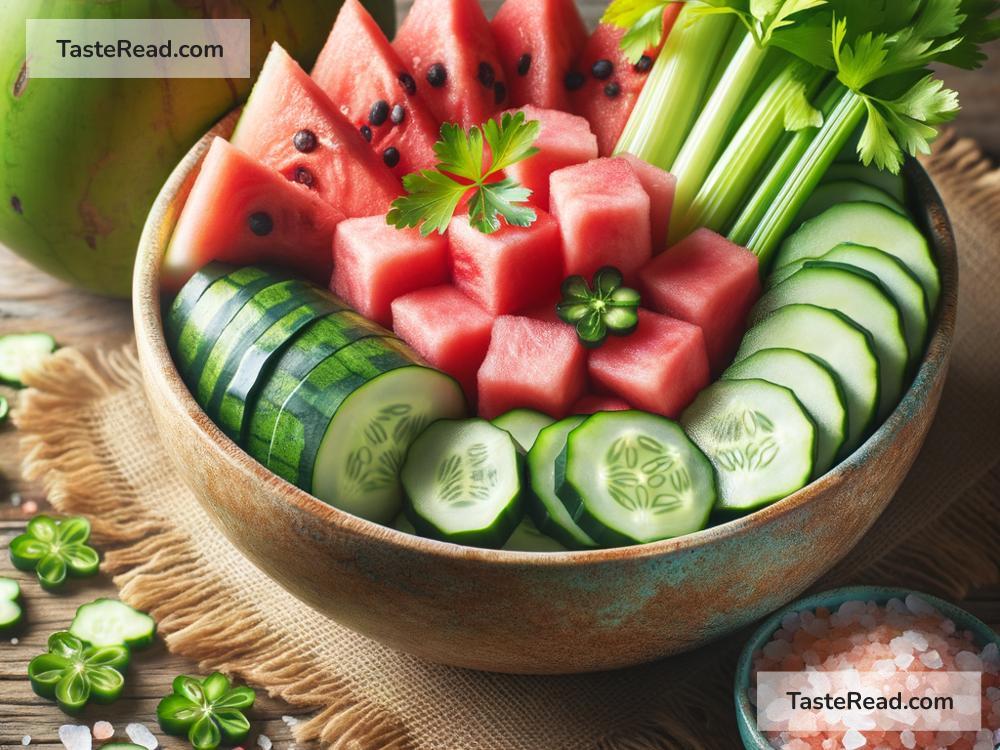Foods That Support Healthy Sweat Production
Sweating is one of the body’s natural ways to stay cool and healthy. It helps regulate your body temperature, remove toxins, and hydrate your skin. But did you know that the foods you eat can influence how your body sweats? Eating certain foods can enhance healthy sweat production, making sure your body works efficiently. In this blog, we’ll talk about the best foods to boost healthy sweating and why they’re good for you.
Why Is Sweating Important?
Sweating is more than just a way to cool off. It’s an essential bodily function that helps with:
- Temperature regulation: Sweat cools your body down when it gets too hot.
- Detoxification: Sweat can push out toxins from your body.
- Skin health: Sweating encourages circulation and helps clear your pores.
- Stress relief: When you exercise or sweat, your body releases endorphins that make you feel good.
While sweating is important, how much you sweat depends on your biology, environment, and diet. Surprisingly, what you eat plays a big role in your ability to sweat well and stay healthy.
Foods That Support Healthy Sweat Production
Let’s dive into some foods that can boost healthy sweating and improve your overall health:
1. Water-Rich Foods
Hydration is key to sweat production. Your body needs water to create sweat, so eating foods high in water content can help. These foods keep your body hydrated and prevent overheating.
- Examples: Watermelon, cucumber, celery, oranges, strawberries, and lettuce.
- Why they’re good: These foods keep your body hydrated without overloading it with calories, which helps maintain steady sweat production.
2. Spicy Foods
Spicy foods are famous for inducing sweating. Ingredients like chili peppers and hot sauce contain capsaicin, which raises your body temperature naturally. This activates your sweat glands and helps you sweat more.
- Examples: Chili peppers, jalapeños, cayenne pepper, and hot curries.
- Why they’re good: Capsaicin triggers sweating, which is great for detoxification. Plus, it can boost your metabolism.
3. Electrolyte-Rich Foods
Electrolytes are minerals like sodium, potassium, and magnesium that help your sweat glands function properly. They regulate fluid balance and ensure your body can produce sweat efficiently.
- Examples: Bananas (rich in potassium), avocados, coconut water, spinach, and sweet potatoes.
- Why they’re good: Eating foods with electrolytes ensures that your sweat glands stay energized and healthy.
4. Whole Grains
Whole grains provide steady energy and help maintain your body’s health. As your body processes these complex carbs, they raise your internal temperature slightly, which can encourage sweating.
- Examples: Oats, quinoa, brown rice, whole wheat bread, and barley.
- Why they’re good: These foods give you long-lasting energy and prepare your body to handle heat efficiently.
5. Herbal Teas
Certain herbal teas, especially warm ones, can boost sweat production. The warmth of the tea increases your body temperature, which prompts sweating. Some teas also have detoxifying properties that help your body eliminate waste.
- Examples: Ginger tea, green tea, chamomile tea, and peppermint tea.
- Why they’re good: Herbal teas not only keep you hydrated but also support your body’s natural detox processes.
6. Foods Rich in Vitamin C
Vitamin C is an antioxidant that helps support the health of your sweat glands. It also promotes better circulation, making it easier for your body to sweat when needed. Plus, it strengthens your immune system.
- Examples: Citrus fruits (like oranges and lemons), bell peppers, kiwi, strawberries, and broccoli.
- Why they’re good: These foods ensure your sweat glands are functioning optimally while offering other health benefits.
7. Healthy Fats
Foods rich in healthy fats help keep your skin hydrated, which is important for sweat production. Fats also provide the energy your sweat glands need to perform well.
- Examples: Olive oil, nuts, seeds, fatty fish (like salmon), and avocados.
- Why they’re good: Healthy fats maintain skin hydration and support sweat gland activity.
Foods to Limit for Healthy Sweating
While some foods promote healthy sweating, others can hinder it. Foods high in sugar, processed foods, and excess caffeine can dehydrate your body and make it harder for you to sweat effectively. It’s best to eat these foods in moderation.
Additionally, alcohol can block your sweat glands and reduce hydration, affecting your sweat production. Drinking plenty of water alongside alcohol can help counteract this effect.
Tips for Staying Hydrated and Sweating Well
- Drink at least 8 glasses of water daily to keep your body hydrated.
- Eat a balanced diet full of fruits, vegetables, proteins, and healthy fats.
- Exercise regularly to encourage healthy sweating.
- Avoid sugary or salty snacks that can dehydrate you.
Closing Thoughts
Sweating is a natural and incredibly important part of your body’s system. By choosing the right foods, you can support healthy sweat production and maintain better overall wellness. Water-rich foods, electrolytes, spices, and vitamin-rich fruits are all great choices to keep your sweat glands functioning at their best.
Remember, sweating isn’t just about staying cool; it’s also about staying healthy. So, next time you plan your meals, include foods that support your body’s ability to sweat efficiently. Your skin—and your health—will thank you!


